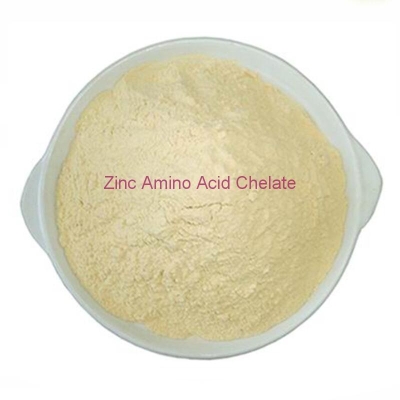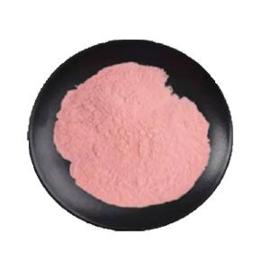-
Categories
-
Pharmaceutical Intermediates
-
Active Pharmaceutical Ingredients
-
Food Additives
- Industrial Coatings
- Agrochemicals
- Dyes and Pigments
- Surfactant
- Flavors and Fragrances
- Chemical Reagents
- Catalyst and Auxiliary
- Natural Products
- Inorganic Chemistry
-
Organic Chemistry
-
Biochemical Engineering
- Analytical Chemistry
- Cosmetic Ingredient
-
Pharmaceutical Intermediates
Promotion
ECHEMI Mall
Wholesale
Weekly Price
Exhibition
News
-
Trade Service
"Green water and green mountains are golden mountains and silver mountains", this sentence has become a program of action in many fields
.
.
On January 19, 2020, the National Development and Reform Commission and Ecological Environment issued the "Opinions on Further Strengthening the Treatment of Plastic Pollution", which clearly stated:
By the end of 2020, non-degradable disposable plastic straws will be banned in the catering industry nationwide; non-degradable disposable plastic tableware will be prohibited for catering services in built-up areas and scenic spots in cities above the prefecture level
.
.
By the end of 2022, the use of non-degradable disposable plastic tableware is prohibited for catering services in built-up areas of county towns and scenic spots
.
.
By 2025, the consumption intensity of non-degradable disposable plastic tableware in the food and beverage delivery areas of cities above the prefecture level will be reduced by 30%
.
.
Plastic tableware, especially plastic straws, once again become the focus of environmental protection
.
.
Speaking of the history of straws, it is said that ancient civilizations thousands of years ago knew how to use metal straws
.
But the straws we use were born at the end of the 19th century, invented by a man named Marvin Stone, and were first made of paper
.
In the 1930s, paper straws with a threaded structure and bendable appeared, which greatly facilitated "Ge Youlie"
.
In the 1960s, plastic chemicals swept the world, and plastic straws gradually
.
But the straws we use were born at the end of the 19th century, invented by a man named Marvin Stone, and were first made of paper
.
In the 1930s, paper straws with a threaded structure and bendable appeared, which greatly facilitated "Ge Youlie"
.
In the 1960s, plastic chemicals swept the world, and plastic straws gradually
Gradually become the mainstream
.
According to media reports, 170 to 390 million straws are used every day in the United States alone
.
.
According to media reports, 170 to 390 million straws are used every day in the United States alone
.
A study published in 2017 speculated that there are approximately 8.
3 billion straws polluting beaches around the world
.
Humans should really do something for the environment.
Choosing the gadget, the straw, is mainly because it is not necessary and difficult to recycle
.
Banning plastic tableware and plastic straws is indeed a measure to control pollution.
The general direction is right.
I believe everyone supports it
.
But does the seemingly simple and straightforward approach really work? Are you really ready?
3 billion straws polluting beaches around the world
.
Humans should really do something for the environment.
Choosing the gadget, the straw, is mainly because it is not necessary and difficult to recycle
.
Banning plastic tableware and plastic straws is indeed a measure to control pollution.
The general direction is right.
I believe everyone supports it
.
But does the seemingly simple and straightforward approach really work? Are you really ready?
At present, the common plastic straws on the market are mainly polyethylene (PE), polypropylene (PP), and some are made of polyvinyl chloride (PVC)
.
It's not that there are no alternatives, but from the user experience, there may be no better than it
.
There are some reusable straws, such as stainless steel, glass, silicone, etc.
, but these straws have safety hazards in use and are not very convenient (need to be cleaned)
.
There are some new environmentally friendly materials, such as degradable polylactic acid (PLA) obtained from deep processing of corn, but the current production capacity and price will not be able to shake plastic materials for a while
.
There are also "pure natural" materials, such as wheat straw, but it may affect the flavor of the beverage and is prone to quality control problems
.
(Wheat stalk is straw in English, which also means straw)
.
It's not that there are no alternatives, but from the user experience, there may be no better than it
.
There are some reusable straws, such as stainless steel, glass, silicone, etc.
, but these straws have safety hazards in use and are not very convenient (need to be cleaned)
.
There are some new environmentally friendly materials, such as degradable polylactic acid (PLA) obtained from deep processing of corn, but the current production capacity and price will not be able to shake plastic materials for a while
.
There are also "pure natural" materials, such as wheat straw, but it may affect the flavor of the beverage and is prone to quality control problems
.
(Wheat stalk is straw in English, which also means straw)
The most commonly used alternative is paper straws, which is a bit back to basics, but it also has obvious shortcomings, especially durability
.
For example, a coffee chain giant completely replaced the paper straws, but netizens complained that they were half sucked and soft
.
At first, drinking coffee was very comfortable and lazy, but the paper straw forced people to drink it quickly
.
There are also people who like to bite on straws, and complain that they bit out the feeling of "carton"
.
.
For example, a coffee chain giant completely replaced the paper straws, but netizens complained that they were half sucked and soft
.
At first, drinking coffee was very comfortable and lazy, but the paper straw forced people to drink it quickly
.
There are also people who like to bite on straws, and complain that they bit out the feeling of "carton"
.
Another chain restaurant giant tried to change straws to paper in the UK and Ireland, but was also frantically complained by the locals, and some even initiated a consensual request to replace plastic straws
.
Not long ago, they also passionately asked to ban plastic straws
.
The face becomes so fast, are they all from Sichuan opera masters?
.
Not long ago, they also passionately asked to ban plastic straws
.
The face becomes so fast, are they all from Sichuan opera masters?
"Consumers hope to have new straws instead of plastic straws, but the premise is not to damage their dining experience
.
" The mouth is very environmentally friendly and the body is honest.
This is the true state of most consumers
.
Environmental protection is a slogan, but also an action, for which a price must be paid
.
The sacrifice may be money, time, convenience and user experience
.
In addition, environmental protection is not a simple multiple choice question
.
For example, Apple’s much-maligned super-undurable charging cable was pressured by Greenpeace to ban PVC
.
The final winner was Greenpeace rather than consumers, and even the environment itself was destroyed, because consumers had to buy a few extra PVC charging cables
.
.
" The mouth is very environmentally friendly and the body is honest.
This is the true state of most consumers
.
Environmental protection is a slogan, but also an action, for which a price must be paid
.
The sacrifice may be money, time, convenience and user experience
.
In addition, environmental protection is not a simple multiple choice question
.
For example, Apple’s much-maligned super-undurable charging cable was pressured by Greenpeace to ban PVC
.
The final winner was Greenpeace rather than consumers, and even the environment itself was destroyed, because consumers had to buy a few extra PVC charging cables
.
Jobs commented at a general meeting of shareholders: I think your organization is too obsessed with "principles", and respect for facts is far from enough
.
I think you rely too much on those flashy principles and fail to pay enough attention to technology
.
.
I think you rely too much on those flashy principles and fail to pay enough attention to technology
.
Environmental protection is a systematic project.
Plastic pollution alone is far more complicated than you think.
After all, it is too widely used in life
.
As many as 8 million tons of plastic pour into the sea every year, and straws only account for 0.
025% of it
.
Plastic pollution alone is far more complicated than you think.
After all, it is too widely used in life
.
As many as 8 million tons of plastic pour into the sea every year, and straws only account for 0.
025% of it
.
Of course, each of us can contribute our own meager strength
.
For example, when the paper straws are fully rolled out in the future, don't make complaints that it is not easy to use
.
For example, when I go to a fast food restaurant to drink a drink, I don’t take a straw and just open the lid to drink
.
Of course, some beverages are inseparable from straws, such as pearl milk tea, milkshakes, etc.
Perhaps the plastic ban can stimulate corporate innovation and develop useful and environmentally friendly materials to save foodies!
.
For example, when the paper straws are fully rolled out in the future, don't make complaints that it is not easy to use
.
For example, when I go to a fast food restaurant to drink a drink, I don’t take a straw and just open the lid to drink
.
Of course, some beverages are inseparable from straws, such as pearl milk tea, milkshakes, etc.
Perhaps the plastic ban can stimulate corporate innovation and develop useful and environmentally friendly materials to save foodies!







